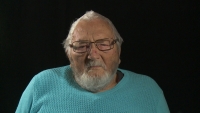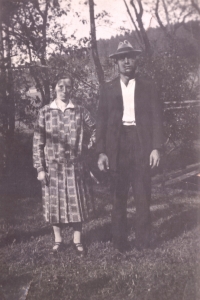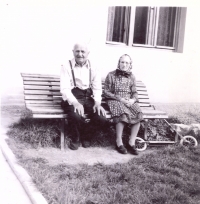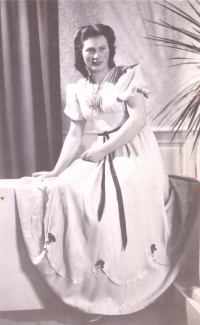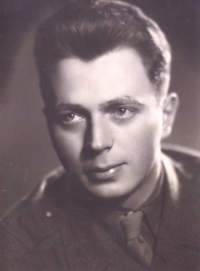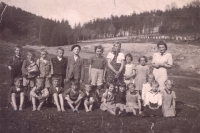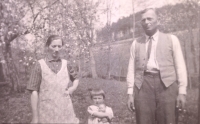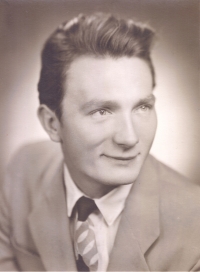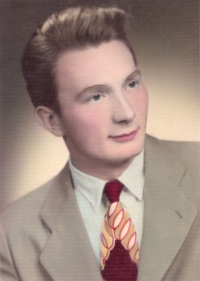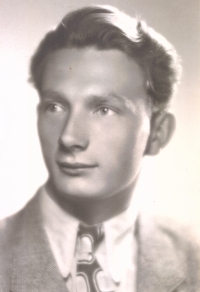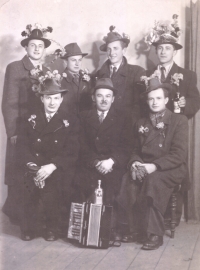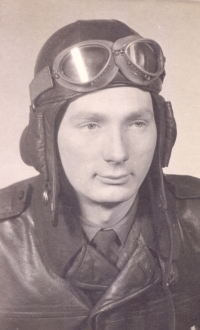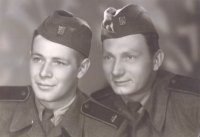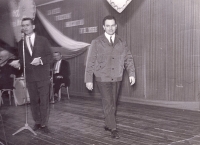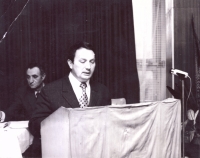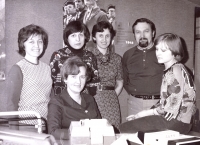They were coming this road, helped building it, and also left to Auschwitz through this road

Download image
František Němec was born in Hodonín near Kunštát on January 24, 1932. He grew up on the family farm of Alois Němec, a trained carpenter, and Anna, née Dvořáková. As a child, the witness witnessed events connected primarily with the existence of the so-called Gypsy camp near Hodonín near Kunštát in a place called Žalov, where the Memorial to the Holocaust of the Roma and Sinti in Moravia stands today. He recalls the admission procedure that the Roma underwent after arriving at the camp gate, the carriages that carried the dead to Chernivtsi, and he walked with other children to the immediate vicinity of the camp. On January 18, 1945, František Němec became a witness to the Gestapo’s investigation of the inhabitants of Hodonín near Kunštát after the killing of the German gendarme Bruno Scholz by partisans from the Third Czechoslovak army strike company in Hodonín’s pub of the stepfather of Drahomíra Kahulová (1926). In 1946, at a time when Germans destined for deportation were interned in the area of the former so-called Gypsy camp, he and several other Hodonín children became infected with typhus and had to be hospitalized in Brno. After the war, he trained as a tailor. At the time of collectivization, the family was affected by the persecution of farmers. After the training to be a tailor and evening master school in Prostějov, the witness became a master and spent most of his life working in various operations of the Kras company (Brno, Měřín, Boskovice). He gradually rose through the shift manager and technologist to the post of director, even though he was fired from the Communist Party after 1968. After 1989, he worked for 14 years as a representative of Hodonín near Kunštát and held the position of mayor for two voting terms (1998–2006). He lived in Hodonín near Kunštát in 2022.
